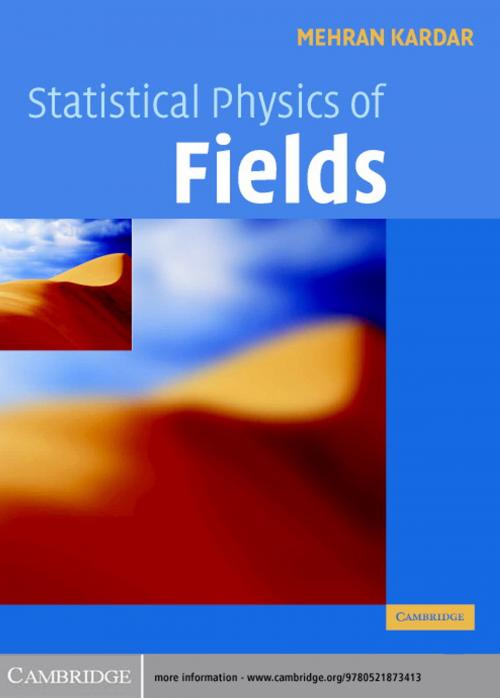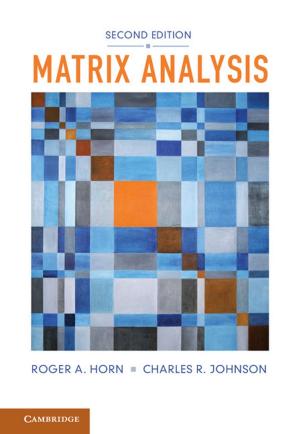Statistical Physics of Fields
Nonfiction, Science & Nature, Science, Physics, Mathematical Physics, General Physics| Author: | Mehran Kardar | ISBN: | 9781139234993 |
| Publisher: | Cambridge University Press | Publication: | June 7, 2007 |
| Imprint: | Cambridge University Press | Language: | English |
| Author: | Mehran Kardar |
| ISBN: | 9781139234993 |
| Publisher: | Cambridge University Press |
| Publication: | June 7, 2007 |
| Imprint: | Cambridge University Press |
| Language: | English |
While many scientists are familiar with fractals, fewer are familiar with scale-invariance and universality which underlie the ubiquity of their shapes. These properties may emerge from the collective behaviour of simple fundamental constituents, and are studied using statistical field theories. Initial chapters connect the particulate perspective developed in the companion volume, to the coarse grained statistical fields studied here. Based on lectures taught by Professor Kardar at MIT, this textbook demonstrates how such theories are formulated and studied. Perturbation theory, exact solutions, renormalization groups, and other tools are employed to demonstrate the emergence of scale invariance and universality, and the non-equilibrium dynamics of interfaces and directed paths in random media are discussed. Ideal for advanced graduate courses in statistical physics, it contains an integrated set of problems, with solutions to selected problems at the end of the book and a complete set available to lecturers at www.cambridge.org/9780521873413.
While many scientists are familiar with fractals, fewer are familiar with scale-invariance and universality which underlie the ubiquity of their shapes. These properties may emerge from the collective behaviour of simple fundamental constituents, and are studied using statistical field theories. Initial chapters connect the particulate perspective developed in the companion volume, to the coarse grained statistical fields studied here. Based on lectures taught by Professor Kardar at MIT, this textbook demonstrates how such theories are formulated and studied. Perturbation theory, exact solutions, renormalization groups, and other tools are employed to demonstrate the emergence of scale invariance and universality, and the non-equilibrium dynamics of interfaces and directed paths in random media are discussed. Ideal for advanced graduate courses in statistical physics, it contains an integrated set of problems, with solutions to selected problems at the end of the book and a complete set available to lecturers at www.cambridge.org/9780521873413.















